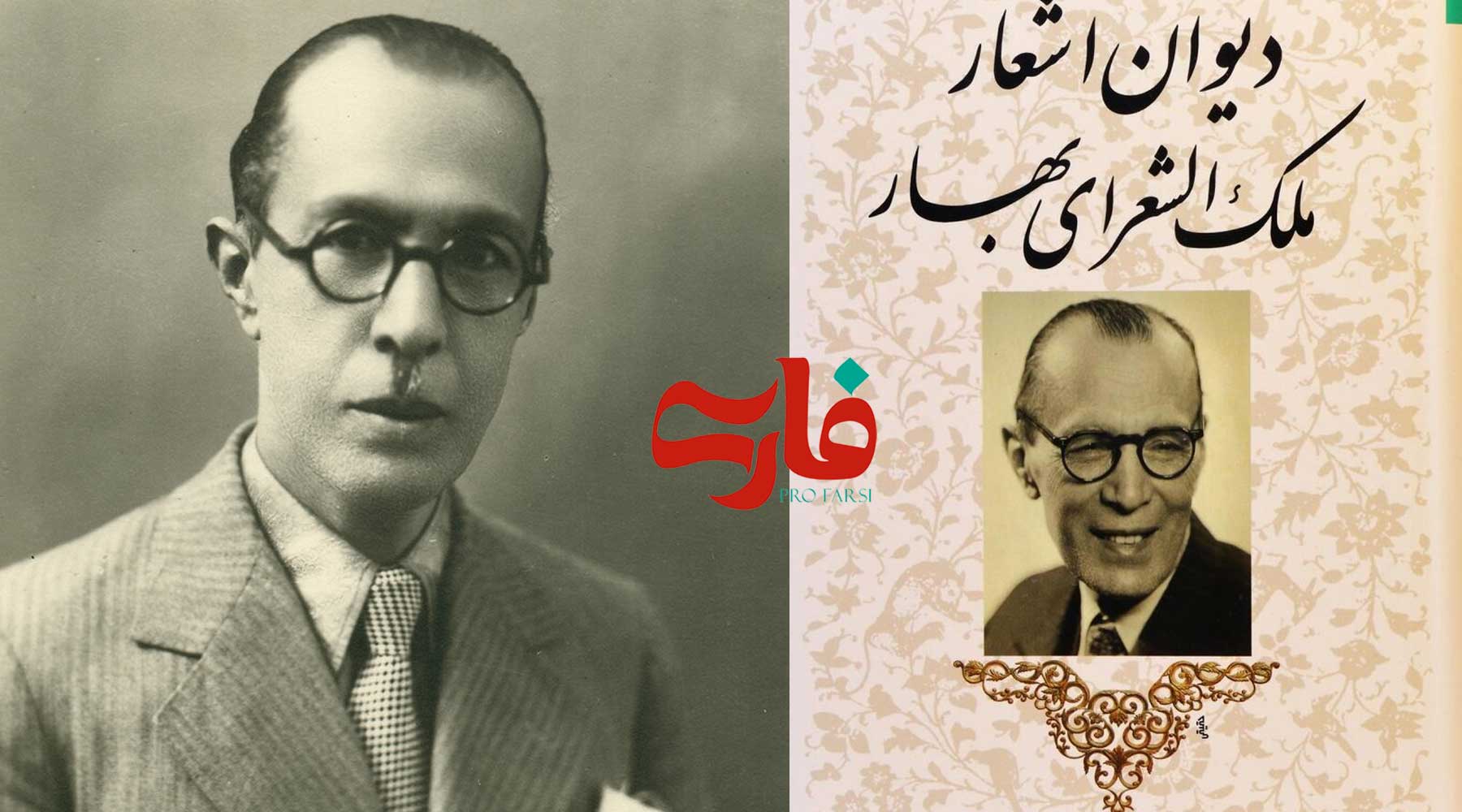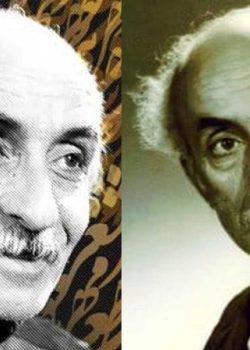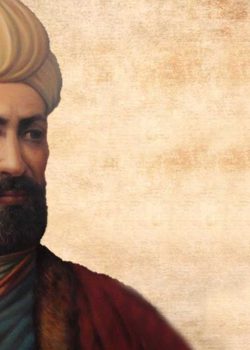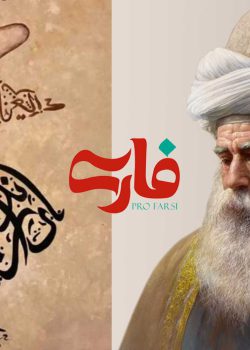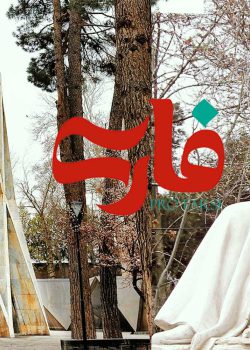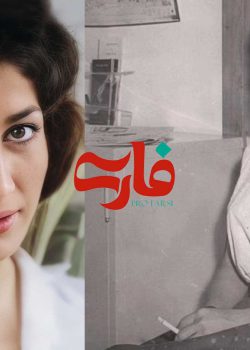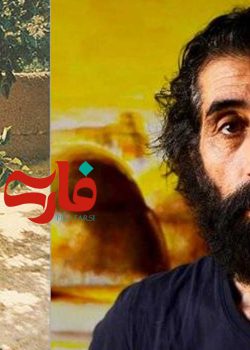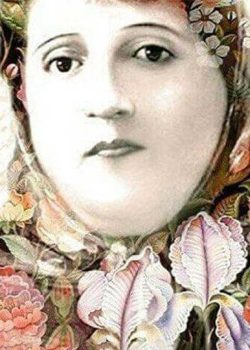mohammad-taqi bahar poems in farsi and english
Mohammad-Taqí Bahār also known as Malek o-Sho’arā Bahār was born on November 6, 1884. His father was Mohammad Kazem Sabouri, and his mother was Sakineh Tehrani (daughter of Haj Abbas Gholi Tehrani). in the Sarshoor District of Mashhad, the capital city of the Khorasan Province in the north-east of Iran. He was a prominent Iranian poet, scholar, and literary critic. He is considered one of the pioneers of modern Persian poetry and played a significant role in shaping the literary landscape of Iran during the 20th century.
As a poet, Mohammad Taghi Bahar was known for his innovative and free-spirited approach to poetry, breaking away from the traditional poetic conventions of his time. He introduced new themes, forms, and expressions into Persian poetry, and his works reflected his nationalist and social concerns.
In addition to his poetry, Bahar was a scholar and a literary critic. He wrote numerous articles and essays on Persian literature and culture, contributing to the intellectual discourse of his era. His notable work “Sabk-e-Hendi” (The Indian Style) is considered a landmark in modern Persian literary criticism.
In the last years of his life, Bahār suffered from Tuberculosis brought on by imprisonment by the Shah. He sought medical treatment in Leysin, Switzerland, in a sanatorium, where he stayed between 1947 and 1949. It was not long after his return to Iran that his health quickly deteriorated. He died on April 21, 1951, at his home in Tehran. He is entombed in Zahir o-Dowleh Cemetery in Darband, located in Shemiran, north of Tehran.)
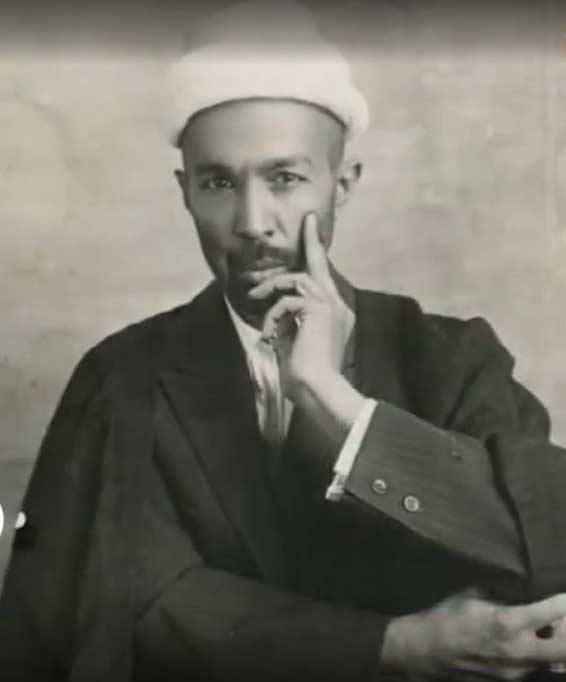
The Best Poems Of Mohammad Taqi Bahar:
ز شعر قدر و بها یافتند اگر شعرا
منم که شعر ز من یافتهاست قدر و بها
به پیش نادان گر قدر من بود پنهان
به پیش دانا باشد مقام من پیدا
همی نشاید گفتن که تیره شد خورشید
اگر نیاید روشن به دیدهٔ اعمی
شگفت نیست گرم آفتاب سجده برد
به پیش طبع سخنگوی و خاطر دانا
ولی دریغ که بر من ز شاعری نرسید
مگر فزونی خصم و تطاول اعدا
چه حیله سازم با دشمنان بیآزرم
چه گوی بازم با روزگار بیپروا
وفا ندیدم زین روزگار عهدگسل
کدام مرد بدیدهاست ازین عجوز وفا
به پتک جور سپهرا سرم به خیره مکوب
به سنگ کینه جهانا تنم به خیره مسا
به بند خویش بسی ماندی این تن رنجور
کنون نمودی در بند دشمنانش رها
جلیس من به مه و سال، جسم محنتکش
ندیم من به شب و روز، چشم خونپالا
به بردباری آن یک چو سد اسکندر
به خونفشانی این یک چو پهلوی دارا
برون زحد و حصا رنج بینم اندر دهر
که هست خصم و حسودم برون ز حد و حصا
حسود چیره شود هرکه را فزود کمال
مگس پذیره شود هرکجا بود حلوا
“Poets found value and worth in poetry
I am one whose poetry has gained value and worth
In the presence of the ignorant, my value may be hidden
But in the presence of the wise, my position is evident
It is no wonder if the sun becomes dark
When it does not shine in the eyes of the blind
It is no wonder that the warm sun bows in prostration
Before the eloquent tongue and enlightened mind
But alas, I fell short in achieving the status of a great poet
Perhaps due to the excess of enemies and the audacity of adversaries
How can I scheme against enemies who are relentless?
How can I speak out against a daring era?
I have not witnessed loyalty and steadfastness in this era
Which man has seen fidelity from this treacherous time?
My head is struck by the blow of the sky’s cruelty
My body is wounded by the stone of the world’s enmity
I have remained in the chains of my own disposition for too long
But now, I have shown my enemies the path to freedom
My companion is the moon and the passing years, a suffering body
My friend is the day and night, my eyes bloodshot
With the perseverance of Alexander’s dam
With the generosity of the ancient Iranian’s lifeblood
Outside of boundaries and limitations, I endure pain in this world
For I have enemies and envious ones beyond bounds and limits
The jealous become agitated when someone excels
Just as flies are attracted to wherever there is sweetness.”
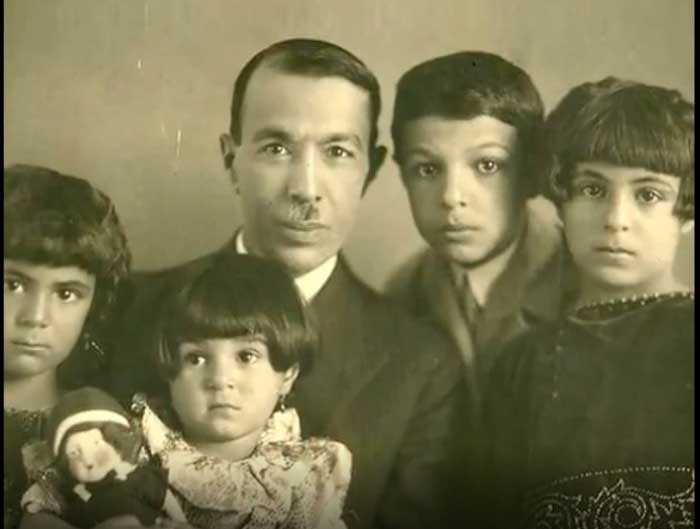
هشت تن در هشت معنی شهرهاند اندر ادب
چار شاعر در عجم پس چار شاعر در عرب
درگه رامش «ظهیر» و «نابغه» هنگام خوف
گاه کین «اعشی قیس» و «عنتره» گاه غضب
ور ز اشعار عجم خواهی و استادان خاص
رو ز شعر چار تن کن چار معنی منتخب
وصف را از «طوسی» و اندرز را از «پارسی»
عشقرا از «سجزی» و هجو از«ابیوردی» طلب
اولی وصفی حقیقتی، دومی پندی دقیق
سومی عشقی طبیعی، چارمی هجوی عجب
“Eight poets are famous in eight different styles of literature,
Four poets in Persian and four poets in Arabic.
In Rameshgarh, Zaher and Nabegheh appear at times of fear,
At times of anger, A’shiq Qais and ‘Antarah show their rage.
If you seek poetry from the Arabic realm and distinguished masters,
Turn to the four selected Persian poets for four meanings.
For the description, seek Tusi, for advice, seek from Persian poets,
For love, seek Sajzi, and for satire, seek Abuarudi.
The first one is a true description, the second, precise counsel,
The third, natural love, and the fourth, astonishing satire.”
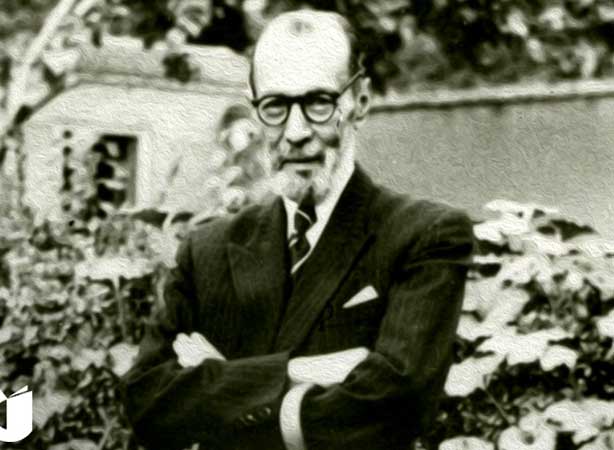
این که بینی در مقابل، نیست آن قوس قزح
بهر ما دست طبیعت طاق نصرت بسته است
گر رعیت بسته بود آن طاق را لطفی نداشت
خُرّمم کان طاق را دست طبیعت بسته است
“The rainbow’s arch is not opposite us,
For the hand of nature has tied the bow of victory for us.
If the subjects were bound, the bow would lack kindness,
I am delighted, for nature has tied that bow for me.”
گرم به خنجر بیداد خون بریزد دوست
ازو به حق نبرم شکوه زان که حق با اوست
ز دست دشمن اگر صد قفا خورم شاید
به یک خطا که ز من رفت در ارادت دوست
“If the beloved sheds the blood of enmity with a hot dagger,
I will not take revenge, for the truth is with them.
Even if I suffer a hundred injuries from the hands of enemies,
One mistake that I make in my devotion to the beloved is enough.”
حضرت سالار بهر مرغ گرفتار
از ره اکرام آب و دانه فرستاد
آب حیات اندرون کوزهٔ مینا
تا دهدم عمر جاودانه، فرستاد
هفت عددکوزهٔ نبات کرم کرد
سه خم شیرین می مغانه فرستاد
از سر انصاف، تلک عشرکامل
تا نزنم در نقیصهچانه، فرستاد
یاشد رمزی گر امتنان رهی را
خربزهبخشید و هندوانهفرستاد
دانستاین بنده تشنهٔ سخن اوست
کاهلی طبع را بهانه فرستاد
خشکلبم یافت، زان قبل شکر تر
در عوض شکرین ترانه فرستاد
شکر کنم زو که این همه شکر تر
در خم سربسته بینشانه فرستاد
یا بدل شعر تازه نزلی موزون
شهد و شکر کرده در میانه فرستاد
بختش خواهم بلند و هیچ نبینم
کاو بفرستاد هدیه یا نفرستاد
“The exalted Sultan took pity on the captive bird,
He sent water and grain through acts of generosity.
Inside the precious enameled jug is the water of life,
To grant me eternal life, He sent it.
Seven vats of divine wine He prepared,
Three sweet sips of blissful wine He sent.
Out of pure justice, those ten perfect virtues,
So that I won’t stumble into negligence, He sent them.
If a secret is known, and the path of gratitude is clear,
He bestowed melons and watermelons as gifts.
This humble servant knows that his thirsty soul
Offers excuses for its slothful nature.
He found my dry lips and moistened them with sugar,
In return, He sent a sweet melody.
I will thank Him for all these sweeter-than-sugar gifts,
He sent them secretly in a tightly sealed container.
I wish for His blessings to be elevated, unseen by others,
Whether He has sent gifts or not, I will not look for them.”
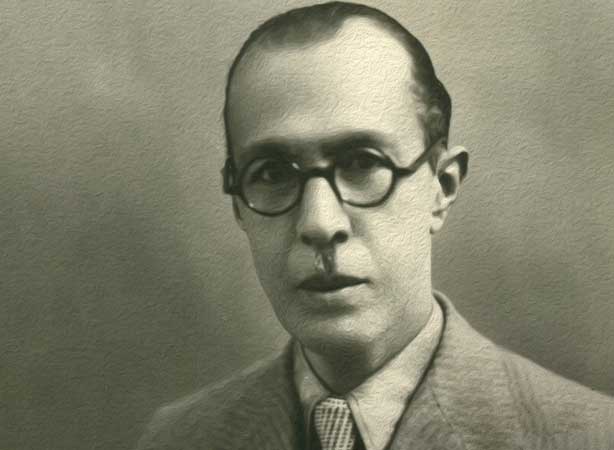
وه که عشقی در صباح زندگی
از خدنگ دشمن شبرو بمرد
پرتوی بود ازفروغ آرزو
آن فروغ افسرد وآن پرتو بمرد
شاعری نوبود وشعرش نیزنو
شاعر نو رفت و شعر نو بمرد
“Oh, what a love there was in the morning of life,
From the enemy’s arrow, a wounded deer died.
A ray was there from the radiance of hope,
That radiance faded, and that ray died.
A new poet did not arise, nor did his poetry,
The new poet departed, and the new poetry died.”
دیدم به بصره دخترکی اعجمی نسب
روشن نموده شهر به نور جمال خویش
میخواند درس قرآن در پیش شیخ شهر
وز شیخ دل ربوده به غنج و دلال خویش
میداد شیخ، درس ضلال مبین بدو
و آهنگ ضاد رفته به اوج کمال خویش
دختر نداشت طاقت گفتار حرف ضاد
با آن دهان کوچک غنچه مثال خویش
میداد شیخ را به «دلال مبین» جواب
وان شیخ مینمود مکرر مقال خویش
گفتم به شیخ راه ضلال اینقدر مپوی
کاین شوخ منصرف نشود از خیال خویش
بهتر همان بود که بمانید هر دوان
او در دلال خویش و تو اندر ضلال خویش
“I saw a non-Arab girl in Basra, elegant and refined,
She illuminated the city with the light of her beauty.
She was reading the Qur’an in front of the city’s sheikh,
But she had captivated the sheikh’s heart with her allure and coquetry.
The sheikh was teaching her the lesson of ‘Do not lead astray,’
But her sweet melody had reached the peak of perfection.
The girl couldn’t bear to pronounce the letter ‘Dad’ (in Arabic),
With her small mouth, like a bud resembling a parrot’s beak.
The sheikh was answering her with ‘Do not lead astray,’
And the sheikh’s speech appeared repeatedly cunning.
I said to the sheikh, ‘Do not lead her astray so much,
As she might not be turned away from her own thoughts.’
It’s better for both of you to remain in your own ways,
She remains in her coquetry, and you stay in your guidance.”
سحرگه به راهی یکی پیر دیدم
سوی خاک خم گشته از ناتوانی
بگفتم چه گم کردهای اندرین ره؟
بگفتا: جوانی، جوانی، جوانی
“Late at night, I saw an old man on the road,
Bent towards the ground due to his weakness.
I asked him, ‘What have you lost on this path?’
He replied, ‘My youth, my youth, my youth.”
زینت مرد به عقل است و هنر
نی به پوشاک وجلال و فرّهی
دیدهام دانشورانی با خرد
در لباس ژنده چون عبد رهی
نیز دیدم سفلگانی بی کمال
کرده بر تن جامهٔ شاهنشهی
پوشش عالی نشان عقل نیست
فرق باشد از ورم تا فربهی
بیبها باشد لباسی کاندر او
نیست غیر از احمقی و ابلهی
کیسهٔ کرباس باشد پر بها
چون در او ریزند زرّ دهدهی
جاهل اندر جامهٔ فاخر بود
کیسهٔ ابریشمین، اما تهی
The adornment of a man lies in intellect and art,
Not in garments, splendor, or ostentation.
I have seen knowledgeable ones with wisdom,
Clad in modest attire like humble servants.
I have also seen the lowly ones without perfection,
Wearing royal robes like a king’s attire.
Exquisite clothing is not a sign of wisdom,
The difference lies between true substance and mere appearance.
A garment may be priceless,
But if it contains nothing, it belongs to the fool.
A silk bag may be expensive,
Yet empty when filled with worthless coins.
The ignorant person may appear in grand attire,
But the silk bag is empty, regardless of its extravagance.
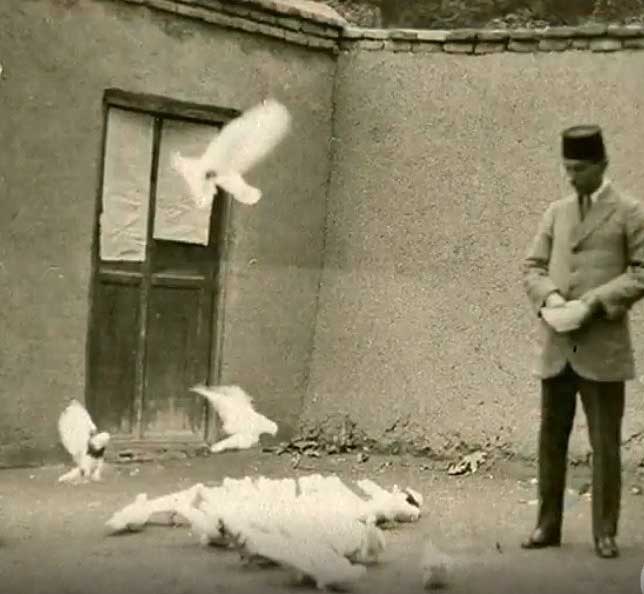
سینهٔ خویش کن فراخ و سترگ
وندر آن جای ده دلی هنری
باز مانی ز کارهای بزرگ
گر به هر کار خرد درنگری
Open up and broaden your heart,
Therein lies the dwelling of artistic endeavors.
Don’t limit yourself to trivial pursuits,
If you reflect with wisdom on any task.
همی نالم به دردا، همی گریم به زارا
که ماندم دور و مهجور، من از یار و دیارا
I lament in pain, and I weep in sorrow,
For I am left distant and abandoned, away from my beloved and homeland.
ای دلبر من، تاج سر من
یک دم ز وفا، بنشین بر من
نازت بکشم ای مایه ناز
بارت ببرم ای دلبر من
وای از تو که سوخت پروانه صفت
شمع رخ تو بال و پر من
رحمی که بسوخت عشق تو مرا
چندان که نماند خاکستر من
ای مرغ سحر این نامه ببر
نزد صنم گل پیکر من
لیلای منی مجنون توام
من بندهٔ تو تو سرور من
دل شد ز غمت چون قطره خون
وز دیده چکید در ساغر من
ویرانه شود آن خانه که نیست
روشن ز رخت ای اختر من
لطفت شکرست قهرت شررست
هم نوش منی هم نشترمن
هرجا گذری با صوت خوشت
خاک ره توست چشم تر من
گوید که «بهار» نالد چو هزار
ناکرده نظر بر منظر من
O my beloved, you are the crown of my head,
For a moment, sit with me and be true.
I’ll caress your coyness, O my source of pride,
I’ll bear your burden, O my beloved.
Woe to the qualities that burnt me like a moth,
Your face, the candle, is the wings and feathers of mine.
The mercy that your love burned in me,
Leaving nothing but ashes in my being.
O bird of dawn, carry this message for me,
To the beloved with a beautiful body like a flower.
I am your Layla, and you are my Majnun,
I am your servant, and you are my master.
My heart bleeds like a drop of blood from your sorrow,
And my eyes shed it into a cup.
Wherever you pass with your sweet voice,
The road’s dust becomes wet from my tearful eyes.
“Bahar” says a thousand times in a melodious tune,
The Beloved’s glances have not fallen upon my sight.
بر دامن دشت بنگر آن نرگس مست
چشمی به ره و سبزه عصایی در دست
گویی مجنون به انتظار لیلی
ازگور برون آمد و بر سبزه نشست
Look at the drunken narcissus in the embrace of the plain,
With an eye on the path and a green staff in hand.
You would say Majnun, awaiting Layla,
Came out of the desert and sat on the grass.
به دل جز غم آن قمر ندارم
خوشم ز آنکه غم دگر ندارم
کند داغ دلم همیشه تازه
از این مطلب تازهتر ندارم
In my heart, there is nothing but the sorrow of that moon,
I am content, for I have no other grief.
The wound of my heart always remains fresh,
I have nothing fresher than this matter.
امروز نه کس ز عشق آگه چو من است
کز شکّر عشقم همه شیرین سخن است
در هر مژه من به ره خسرو عشق
نیروی هزار تیشه کوهکن است
Today, no one is as aware of love as I am,
For all my words are sweetened by the sugar of love.
In every eyelash, I possess the strength of a thousand mountain-
cutting swords on the path of the King of Love.
آن شمع دل افروز من از خانه من رفت
پروای گلم نیست که پروانه من رفت
دارم صدف آسا کف خالی و لب خشک
تا از کفم آن گوهر یک دانه من رفت
چون باغ خزان دیده ز پیرایه فتادم
زبن شاخه پر گل که ز گلخانه من رفت
That heartwarming candle of mine left my home,
My flower has no interest, as its butterfly has departed.
I hold an empty shell in my hand, with dry lips,
The pearl, that once was a seed, slipped from my grasp.
As I gazed at the autumnal garden, I sighed deeply,
The branch full of flowers departed from my flower shop.

ای پسر مادر خود را مازار
بیش از او هیچ کرا دوست مدار
تو چه دانی که چها در دل اوست
او ترا تا به کجا دارد دوست
نیست از «عشق» فزون تر مهری
آن کهبسته است به موی و چهری
عشق از وصل بکاهد باری
کم شود از غمی و آزاری
لیکن آن مهر که مادر دارد
سایه کی از سر ما بردارد؟
مهر مادر چو بود بنیادی
نشود کم ز عزا یا شادی
کور و کر کردی و بیمار و پریش
پیر و فرتوت و فقیر و درویش
مام را با تو همان مهر بجاست
نیست این مهر، که این مهر خداست
گر نبودی دل مادر به جهان
آدمیت شدی از چشم نهان
معنی عشق درآب و گل اوست
عشق اگر شکل پذیرد دل اوست
هست فردوس برین چهرهٔ مام
چهره مام بهشتی است تمام
و اب کوثر که روان افزاید
زان دو پستان مبارک زاید
شاخ طوبیست قد و بالایش
خیز و سر نِه به مبارک پایش
از تو گر مادر تو نیست رضا
دان که راضی نبود از تو خدا
وای اگر خنده گستاخ کنی!
آخ اگر بر رخ او آخ کنی!
بسته مادر دل دروای به تو
گر کنی وای برو، وای به تو!
دل او جوی گرت عقل و ذکاست
کان کلید همه خوشبختیهاست
O son, do not offend your mother,
No one loves you more than her.
Do you know what lies in her heart?
How far does her love for you extend?
There is no love greater than a mother’s,
Bound to her child by hair and face.
Love may lessen through union,
But it decreases not through sorrow and hardship.
But the love a mother possesses,
Can any shadow take it away from us?
A mother’s love is the foundation,
It doesn’t diminish through mourning or happiness.
Whether you are blind, lame, sick, or poor,
An old, disheveled beggar or a poor man.
With your mother, the same love remains,
This is not the love of God, it’s her love.
If your mother’s heart didn’t exist in the world,
Your humanity would remain hidden from sight.
The essence of love is in her water and clay,
If love takes shape, it’s in her heart.
This mother’s face is a paradise,
Her face is an entire heavenly garden.
And the water of Kawthar, flowing,
Springs forth from her blessed breasts.
Her branch of Tuba is lofty and tall,
Rise and bow down to her blessed feet.
If you displease your mother, beware!
Woe unto you if you make her cry!
Her heart is a key to wisdom and intelligence,
For it holds the key to all happiness.
Read More:
Molana (Rumi) Poems in Farsi and English
Related Posts

